Termales, a fishing village on the Pacific coast of Colombia, seemed a jewel of nature, untouched, remote, stunningly beautiful. And if I hadn't met Nestor that is the impression of Termales that I would still have today.
I had travelled to Termales for the annual humpback whale migration, the great beasts finding in the warm protected waters off the coast, the perfect conditions to birth their calves. The waters are filled with life; dolphins, sailfish, whale sharks and yellowfin tuna all make appearances throughout the year.
Dark green jungle lines the shore, separated from the ocean by beaches of black sand, interrupted here and there by outcroppings of black, volcanic rock. In the early morning, thick banks of fog come rolling down off the mountain range, covering the forest canopy before they are burnt off by the equatorial sun. From the trees animal sound floats out over the ocean swells; birds, monkeys and who knows what else that live inside that impenetrable green mass of nature.
Nestor worked as a guide at the Ecohotel where I was staying. "Where are you from?" Nestor asked me one night over a game of dominoes.
"Australia," I responded.
"Australia," Nestor repeated with a sound of wonder. "You must love surfing then."
I explained that I had grown up in rural Australia and bucking the national stereotype had never even learnt to swim let alone surf.
"We love surfing here," Nestor continued.
I commented that I hadn't seen anybody surfing.
"We don't have any boards. If we had boards, we would all be surfers," he said and laughed as he smashed another domino down on the table.
It was that conversation that started me on a path that would show me the other side of Termales. Situated in the Department of Choco, it was a remote outpost of civilization, cut off from the luxuries of modernity by a lack of infrastructure and one hundred years of neglect. The population was predominantly Afro Colombian, the descendants of slaves that had been brought to Colombia in the 17th and 18th centuries to work the gold, silver and platinum mines of Choco, after the Spanish colonizers were told that the local indigenous population could no longer be used for such work, because, it had been declared, they possessed a soul were, therefore, human.
Only a 40 minute flight from Medellin, (the city voted the most innovative city in the world in 2013, beating out Tel Aviv and New York), Termales lacked potable water, permanent electricity or even a full time doctor. No roads in, no roads out. No roads anywhere. The citizens of Termales had a life expectancy twenty years less than their compatriots who had had the good fortune to be born white and in Bogota.
After I left Termales, with no plan in mind I started reaching out to people and organisations who could provide surfboards to a community of surfers that didn't surf. I soon organised a donation of five boards. With those boards Nestor formed the Choco Surf Club. In the beginning there were no more than 10 members that gathered a few afternoons each week to surf the beach break that lapped the shore in front of Termales.
After a few months of practicing, Nestor called me. "What's the point of practicing if we can't compete?" It was a good point, but finding competitions in Colombia wasn't easy. In 2012, unlike other Latin American countries such as Peru, Ecuador or Brazil where surfing had a long and deep history, surfing in Colombia was restricted to a few places on the northern, Atlantic coast. There was no national Surf Federation and the competitions that were held were ad hoc affairs.
In February of 2013 we received word that there was going to be a surf tournament in Cartagena. I chased up some sponsors and pestered my circle of friends until we had enough money to send Nestor and three young surfers to compete. That tournament was quickly followed by another, this time in Santa Marta.
One of the surfers that competed in Santa Marta was a boy called Edwin. Edwin must have been about 17 years old at the time. His identification card said that he was 18 but he insisted that that was wrong, the result of a drunken administrator the day he went to renew his ID. Edwin’s father saw surfing as a waste of time. He insisted that Edwin learn to fish. If you were only ever going to grow up to be a fisherman, best you start learning early, that was the philosophy of Edwin’s father. Edwin didn't like fishing. Edwin liked clothes and looking good. But Edwin's father never had money for fancy clothes, few families did in Termales.
Any money Edwin's father had went on visiting the witch doctor, an hour away by boat. What he didn't spend on the transport he spent on the herbs that the witch doctor told him would cure him of the paralysis that had invaded his body. While he was recovering, he needed Edwin fishing, to provide for the family. He didn't need him traveling to Santa Marta for a surfing competition.
Edwin was quiet and untrusting. He would say what he thought you wanted to hear. There was an emptiness behind his eyes, as if he knew that whatever he was doing in the moment meant nothing in the larger scheme of things. He knew where his life would end up and everything in between then and now was just killing time. Edwin was a liar. He was arrogant. He was not somebody you could rely on to serve anything other than self-interest. But Edwin could surf. He could really surf. In the water he had grace, elegance, power. Self-taught, he would slide down the face of a wave with a velocity that made the other surfers look like corks bobbing through the waves. Edwin had something that you couldn't teach, an intuition, a knowledge of the ocean passed down to him by his father on countless early morning fishing trips in the dugout canoes of his youth, the canoes that Edwin was determined to turn his back on.
In early 2014, we contacted the Colombian Ministry of Foreign Affairs who were running a program called Sporting Diplomacy. The program took children from rural conflict areas of Colombia and sent them abroad to practice their chosen sport. The program administrators had never heard of anybody surfing in Colombia and definitely not Afro Colombian surfers. However, they decided to make a trip and see for themselves. By that time the Choco Surf Club had grown to 25 members, young boys and girls who saw in the Club an opportunity to escape the classroom, their family or their future.
In April of 2014 the Colombian Ministry of Foreign Affairs sponsored Nestor and four surfers to make a two-week trip to Australia. There were to be five surfers but upon arriving in Bogota, one of the surfers and the only female, Diana, fell ill. Having no access to dairy products in her home village, Diana couldn't resist the temptations of Bogota's ice cream shops, delights she had only ever seen on TV. The sudden change of diet upset her stomach and by the evening Diana was in hospital, vomiting worms that were over a foot long.
Nestor and I sat by her bedside in hospital, tubes snaking down her throat, taking antibiotics down to her stomach, knowing that her dream trip to Australia was now an impossibility. Nestor was matter of fact. Better this way he said. Better to get healthy and not travel. Nestor had seen children die, choking on the worms exiting their mouths and nose, the endgame to drinking unclean water.
Another not to make the trip to Australia was Edwin. The Sporting Diplomacy program was very specific that only children under 18 years old were admitted to the program. We tried to explain that Edwin's identification card was wrong, but to the government that small card was the sole source of truth.
Over the next three years the Choco Surf Club continued to grow. I travelled frequently to the area spending time with Nestor and the surfers. On one trip we went to the neighbouring village of Partado where Nestor was giving classes once a week. I asked why he hadn't done this earlier and he explained that an armed group controlled the town of Partado and only recently they had approached Nestor to ask if he could teach surfing to their kids. A driving force behind Nestor’s idea to start the Surf Club was the desire to keep young kids joining up to the armed groups. To provide them with other options, other dreams. Despite many young kids telling me that life in an armed group only ever led to two things, tumba or carcel, the grave or gaol, for some it was still a valid life choice.
I watched Nestor work with the children of Partado; correcting stances, pushing kids too small to paddle into gently breaking waves. Nestor wanted to give these kids the same feeling that he felt when he caught a wave. The feeling that he was not an ethnic minority, that he wasn’t a statistic of the black population, that he wasn’t a part of a marginalised population, or poor or a “negro”. The waves of Nestor’s beloved Pacific ocean were eternal while they lasted, and on that wave, in that eternity he was a surfer, and for Nestor there was no higher station in life than to be a surfer, to paddle out beyond the breaks, and wait and watch, seated upon his board, rising and falling with the swell of the ocean, as if sitting upon the respiring breast of mother earth herself.
That afternoon, after surf classes had finished, Nestor pointed out the spot where a number of bodies had been buried a few years previously. "They left them half exposed so the people could see them, as a warning, and nobody was allowed to move the bodies. The kids had to walk past those bodies every day to school. You can't imagine the smell. That's why it’s important to me that we include these kids in the surf classes. They’ve suffered a lot. They won't tell you. But they have. I want them to have a better future. I don't want them involved in the drug trade. I want them to be surfers." Nestor flung his hand at the ocean that stretched out beside us. "I want to look out there and see the ocean full of surfers."
In the same month that I first visited Nuqui, August of 2012, then President Juan Manuel Santos, admitted to what was one of the worst kept secrets in Colombia; that the Government had been holding peace negotiations with the FARC, the Colombian guerrilla group responsible for the longest running insurgency in Latin America. News of the peace negotiations were widely welcomed. They represented a line of sight to the end of a conflict that had blighted this most beautiful of countries for decades. In August of 2012, peace suddenly seemed within reach.
In Nuqui, Nestor believed that the work he was doing was his small grain of sand in the bigger peace process, providing opportunities through sport to children that had only ever known conflict. News of Nestor and his band of 'improbable surfers', as one newspaper described them, began to filter out into Colombia. Journalists made contact. The surfers appeared on television. One of the young surfers was featured on the cover of Colombia's Carrusel magazine, the first time ever that an Afro Colombian had made the cover. It felt like Colombia was changing and the Choco Surf Club was a part of that change.
In 2014, Colombia was invited to participate in the ISA World Surfing Titles in Peru. A Colombian Surfing Federation that was still in the early days of becoming an official entity, selected Edwin to participate in the Colombian team and invited Nestor to be part of the coaching team. Final team selection would be held once the surfers arrived in Punta Rocas in Lima where the tournament was to be held. Edwin was unable to fly the same day as Nestor and the rest of the team, another hold up with his identification card, and when Edwin finally met up with his Colombian team mates, he was told that the selection try out had already been held. He had been excluded without being given the chance to prove his worth.
For the week that the World Titles lasted, Edwin watched on from the stands as surfers that he knew were inferior to him represented their country. And always by his side was Nestor, an arm wrapped around Edwin's shoulders, pointing out waves, incoming swells, moves that caught his eye, equal parts encouraging, consoling and distracting Edwin. But the tenuous thread of hope that had hung together inside Edwin, the hope that surfing might be the way out of a future long foretold, snapped down there on the breaks of Punta Rocas. Edwin was tired of waiting for something that never seemed to happen, something that cousins, aunties and parents said would never happen, he was tired of banking on a future that he couldn't even envision. He was tired of believing that the next fifty years of his life could be any different than the preceding 100 hundred years of the lives of his people. From that point on Edwin started to drift away from surfing.
When Nestor returned from Peru to Termales, he found that his house had been ransacked in his absence. His house was a wooden shack, no more than a couple of rooms, an open fireplace that served as a kitchen. His mother, an elderly woman in her 70s, though she looked much older, was a fixture on the front veranda that overlooked the Pacific Ocean. Digna would sit there smiling, watching the tides come in then run hundreds of metres back out. She always greeted me with a kiss on the cheek, a frail embrace and an enquiry as to how my wife was doing, and how was my family, my mother and father.
The robbery wasn't a great surprise to Nestor. Despite the good work he had been doing in the community, rumours had soon sprung up. From the beginning there had been resistance from some parents to the idea of their kids surfing. The saltwater would ruin the girls’ hair some said. The kids should be studying, others complained. Soon the gossip got nastier. Nestor was getting rich off the kids, they said. Nestor was selling donated surfboards. Nestor was keeping money from the club.
The truth was there was no money from the club. A look at Nestor's humble shack could have told you that Nestor was just as broke then as the day he started the Choco Surf Club. If the thieves hoped to find a hidden stash of money inside Nestor's house they were disappointed. All they made off with was Nestor's fishing gear, but in a fishing village where people lived off what they caught, it was a hard blow.
In December of 2016, the Economist declared Colombia the Country of the Year. The peace process that had started back in 2012 had finally been ratified, but not without a failed referendum that saw the first version rejected by Colombian citizens. Colombians in rural areas like Termales had voted in favour of the peace deal but Colombians living in the cities, the Colombians that could stick to principles like justice, and theories like military solution without having to pay the cost of dead brothers, sisters, daughters and sons voted to reject the deal. President Santos took the decision out of the people's hands and pushed a revised deal through Congress. Peace had finally come to Colombia.
But it hadn't. Not in Termales and many other areas of Colombia despite what the Economist may declare. The area around Termales had traditionally been controlled by the 57th Front of the FARC. It was a strategically important area for the flow of drugs out of Colombia, drugs that kept the guerrilla group well financed. Large rivers, dense impenetrable jungle, a short high speed boat ride to Panama. Termales was cursed by its own geography. When the FARC agreed to lay down their weapons, it opened the door for other armed groups to move into the area and fight for control of the lucrative drug routes.
Two groups dominated the local area, the Autodefensas Gaitanistas de Colombia, remnants of the previously demobilized United Self Defence Forces of Colombia, a paramilitary band, and the Frente Resistencia Cimarrón of the National Liberation Army, Colombia's second major guerrilla group after the FARC. For the citizens of Termales, life under these groups was a constant strain of watching what you say, watching what you see, paying arbitrary taxes and staying low. Over time the Autodefensas Gaitanistas de Colombia would drive the ELN from the area and rebrand themselves as the Clan del Golfo, the Gulf Clan, today Colombia's largest organized drug trafficking cartel.
In 2018, an international organisation called Peace and Sport who counted Prince Albert of Monaco as its patron, recognised the work of Nestor and the Choco Surf Club in using sport to build peace in his community. A few months later, the Colombian newspaper El Colombiano, would also award the Choco Surf Club with a national award in recognition of the work started by Nestor. But by this time, Nestor had drifted away from the project. He said that he needed to focus on his young family, he was now a father to two small boys, both under the age of four. He moved out of the little village of Termales, found a plot of land away from everybody, farmed cassava and spent his days catching fish and waves.
Termales was going though changes. The outside world was encroaching. In 2014 plans were announced to build a megaport in the Gulf of Tribuga. The deep-water port would open up access to Asian markets. It would also mean rail and road corridors. Some citizens were in favour of it, others against it, pointing out that construction of the port would impact on the regions unrivalled biodiversity. It was this world-renowned biodiversity that underpinned the region’s burgeoning tourism industry.
One of those against the port project was Spanish-Colombian citizen Juana Perea. Juana had moved to Nuqui with her American husband and opened an EcoHotel a few years earlier. She was an active member of the community, organising community projects, supporting the surf club and speaking out against the presence of illegal armed groups in the area and against the construction of the megaport.
They killed Juana Perea on a Thursday morning in October 2020. A single shot through the forehead, her body left on the black sand beaches that she had loved.
I spoke to Nestor a few months after the execution of Juana Perea. Even over the patchy whatsapp call, he didn't sound well. I asked him if he was ok. "I am not in Colombia," he said but he wouldn't tell me where he was. "They are going to kill me. I had to leave."
Nestor had been told that he was on the Clan del Golfo's kill list. This occurred at the height of the pandemic, but for Nestor, leaving Colombia didn’t involve any modern concerns of passports, travel restrictions or hotel quarantine. It meant immediately catching a boat from Termales to Nuqui, then a plane from Nuqui to Medellin, then two buses to the Colombian border and then an illegal border crossing to what he hoped would be safety. Contracting a case of dengue on the trip slowed him down but didn’t stop him. He took with him one set of clothes, his telephone, the equivalent of ten dollars, all the money he had to his name, and his surfboard. He left behind two children, his extended family, a home he had constructed by hand and his beloved mother. He didn't tell his children, he didn't tell his family. He fled.
Nestor had good reason to run. Since the signing of the peace accords between the Government and the FARC in 2016, the Institute of Development and Peace Studies (INDEPAZ), reports that 1,140 social leaders have been assassinated in Colombia, a large proportion of them leaders of the Afro Colombian and Indigenous communities from rural areas of Colombia. Around Termales, the killings had started in 2017 with the murder of Javier Montoya at his hotel in Morromico. In January 2020, Anuar Rojas Isaramá, leader of the indigenous Embera Jagua community was assassinated. Then Juana Perea in October of 2020. And in April 2021 Jose Riascos and Margarito Salas were both murdered.
In June of 2021, Nestor called me. Deflated, distant, upset. A million miles away from the irrepressible, bubbly personality that would spend hour after hour, waist deep in the surf of Termales, pushing children into waves, watching them stand and feel the magic under their feet just like he had felt it, then watch them go under the surface before emerging, spitting salt water, smiles beaming, heads rotating to find Nestor, seek his approval, a thumbs up, a cheer of encouragement, knowing that they too were surfers, just like Nestor.
"Mum died," he told me.
Nestor’s mother had succumbed to COVID-19. He had spoken to her only the night before, heard her gasping breaths over the telephone held to her mouth by his brother. She had gone downhill quickly. "I am in Colombia," he told me. I am going back for the funeral and I am going to see my kids." I told him that I thought that was madness. "I know," he said. "But I have to go."
Nestor had asked a friend to see what his situation was like back in Termales. The message he received back wasn't positive. He played it to me over the phone.
"I will tell you what happened to Nestor, what somebody from Termales told me. The night they took Juana Perea, Nestor heard the screams. He went outside with a lantern and he saw them, he saw them taking her. So, they ordered that he be killed. But, if you walk with God, you find these things out and somebody warned Nestor and he fled. He is in El Salvador now. There is no way he can ever return to Termales."
I asked Nestor if the message was true. If he had seen who killed Juan Perea. No, he told me, he hadn't seen or heard anything the night Juana was taken. "They want to kill me because they think I’m an informant. Juana was my neighbour and after they killed her the police came to interview me. I was standing on the veranda of my house speaking to the police and someone saw me.”
“Who?” I asked.
Nestor paused, ever reluctant to protect me from bad news. “Edwin,” he finally said. “He must have told them that I was speaking to the police."

Today there are over 300 young kids surfing in the municipality of Choco. There are surf clubs in the rural villages of Termales, Partado, Arusi, Nuqui, Bahia Solano, El Valle, Juribado. Young boys and girls that grow up dreaming of being professional surfers. Young kids that for a few hours of the day can escape, smile, laugh and feel the magic of a wave beneath their feet. Young kids that dream of a better life. Before Nestor started the Surf Club of Choco there was none of that, there was just a future that led to either the tumba or carcel. There wasn't a surfboard in the Municipality. There should be statues of Nestor on every beach there. Instead, Nestor is a thousand miles away, far from his family, his sport and the black sand beaches of his dreams.
.




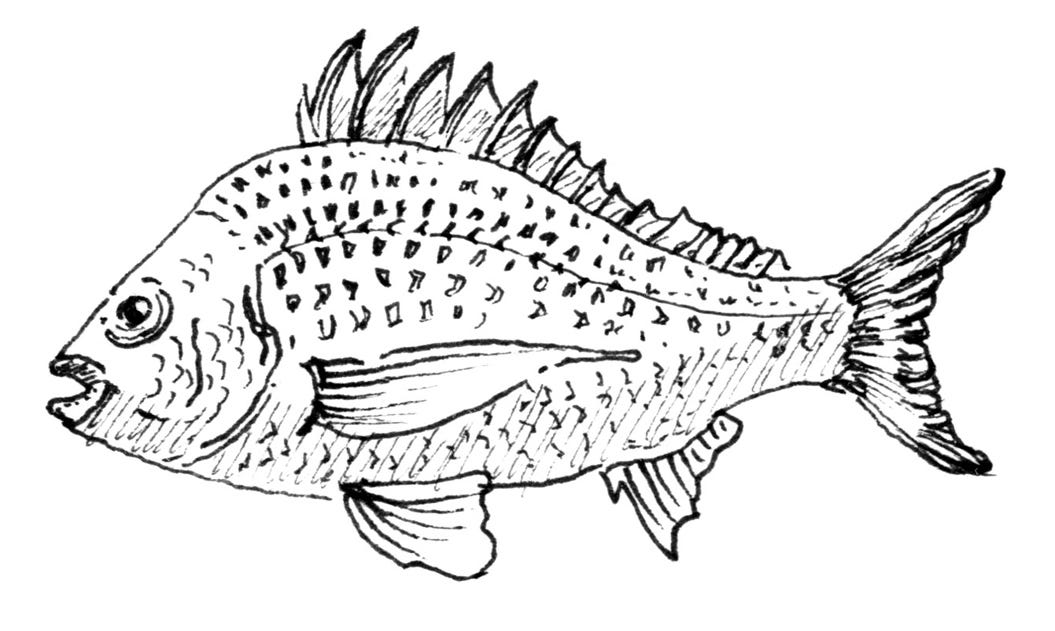


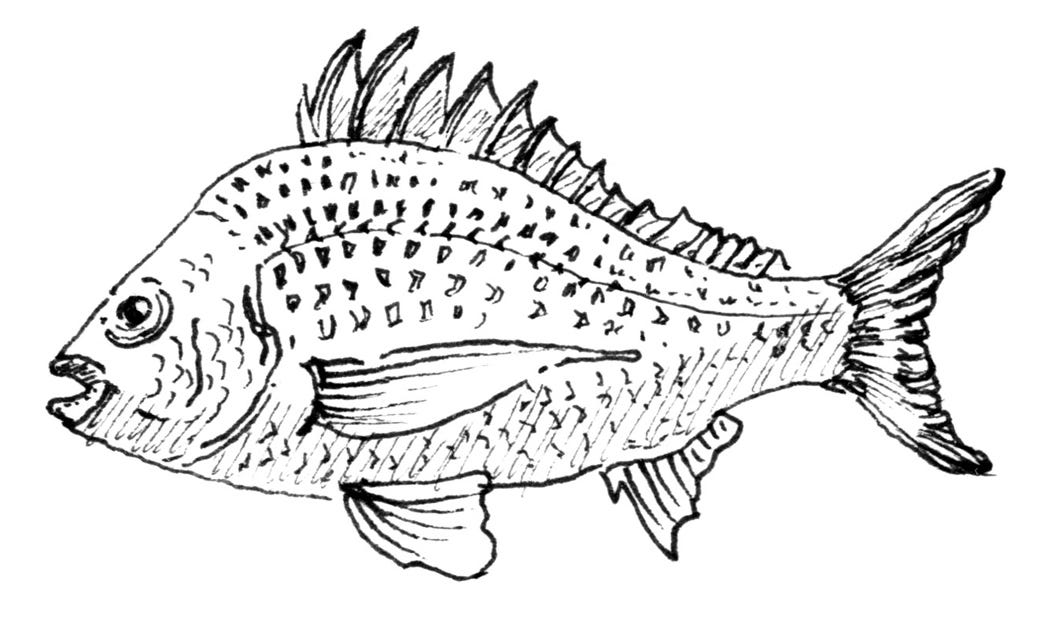
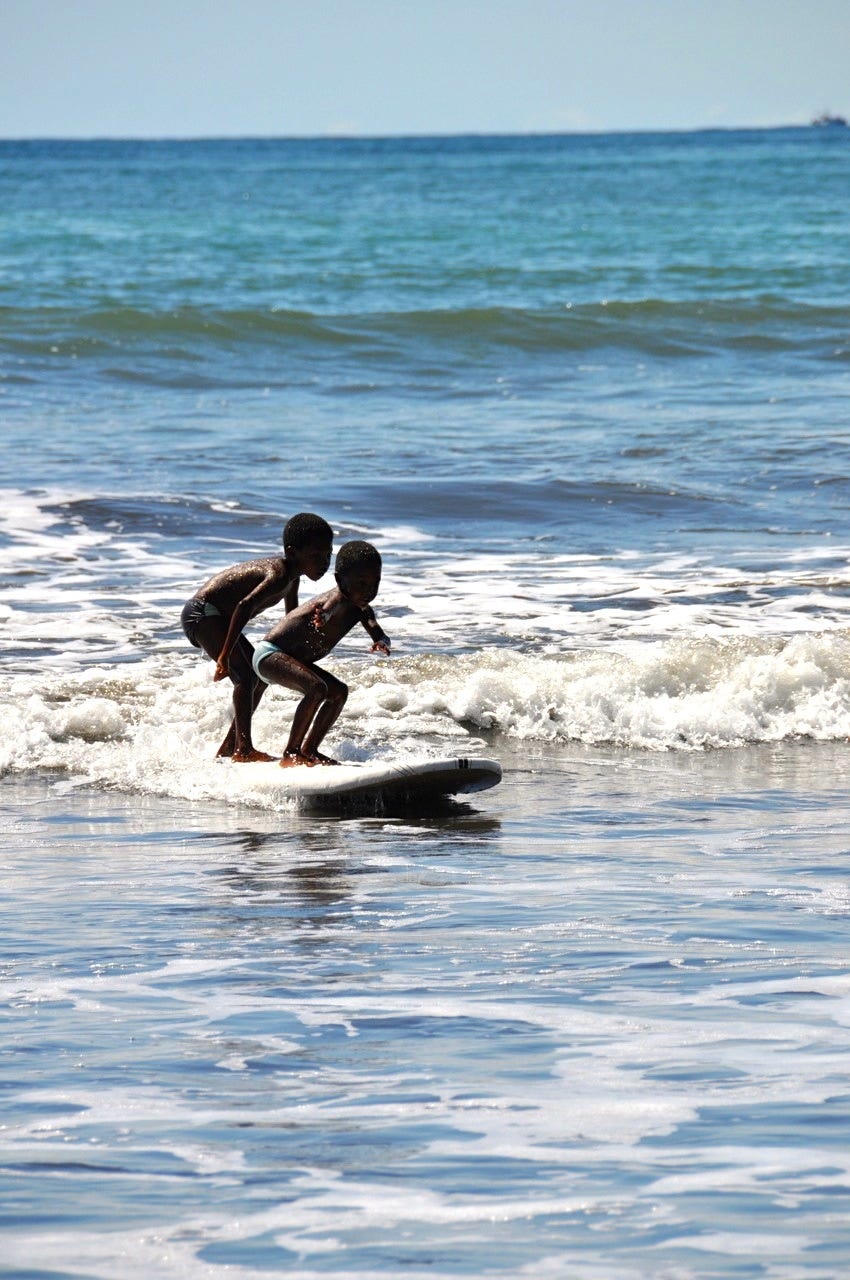




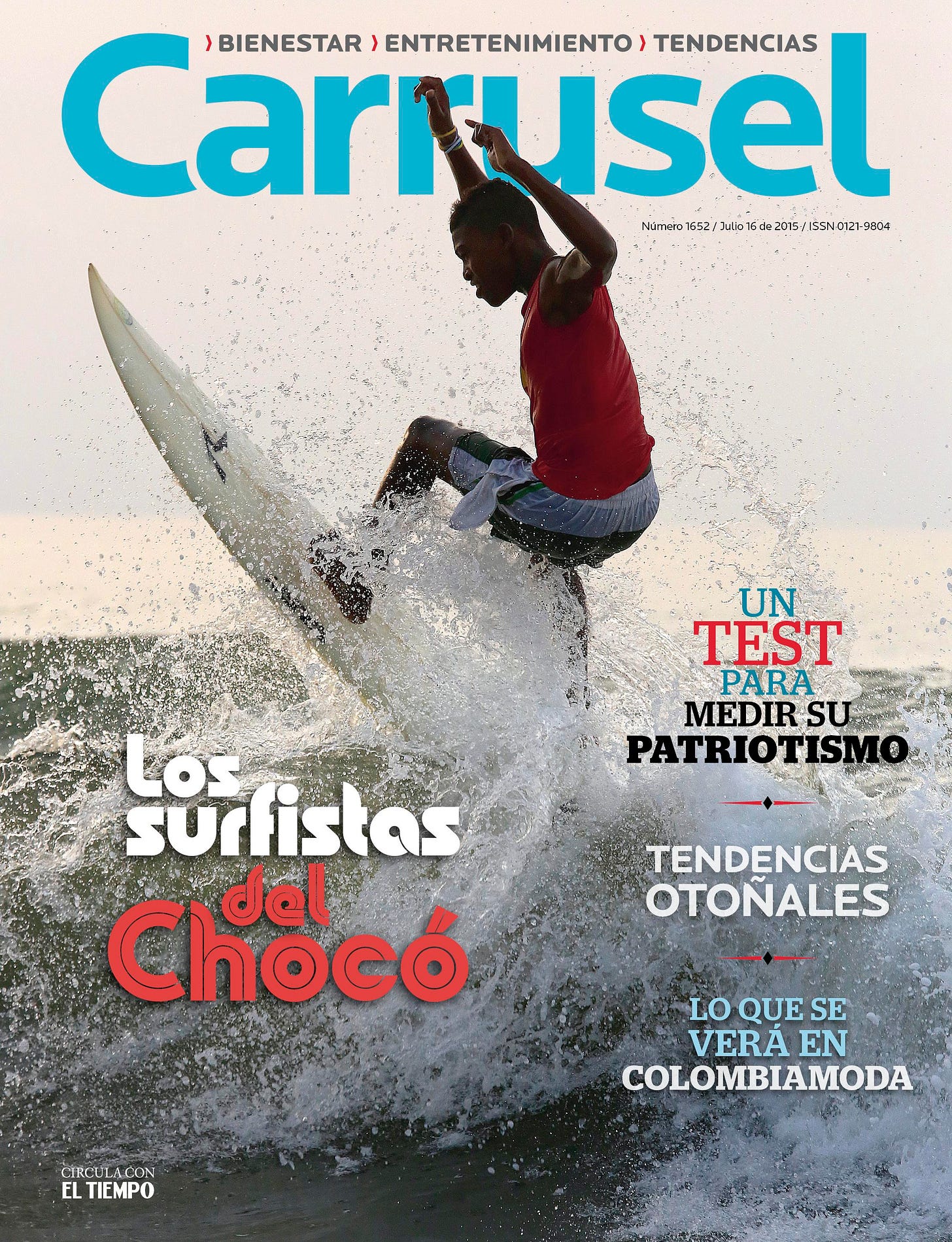

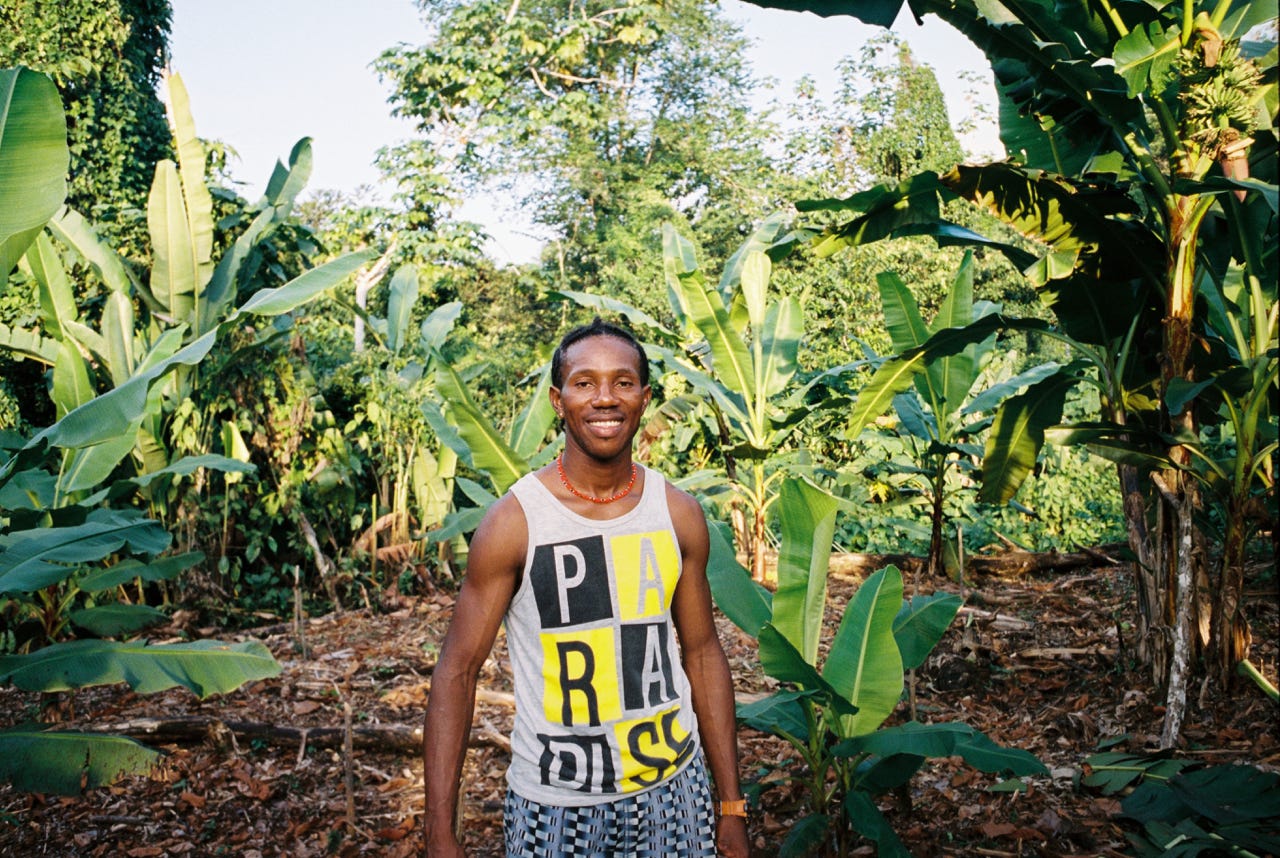
What a gut-wrenching story. Especially when read from the comfort of a safe sofa, fire crackling in the hearth, a dog’s head resting on my knee, sunlight filtering in through the windows and the magpies yodelling the news in the distance.